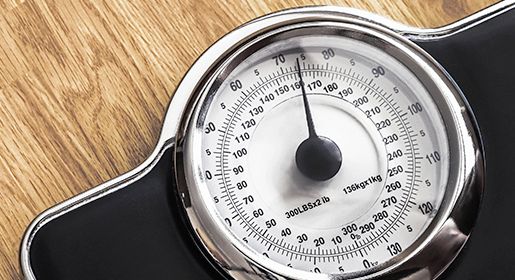COVID-19, Lockdowns Have Slowed Weight Loss Following Bariatric Surgery
An analysis of patients from a hospital in Belgium provides insight into the impact of COVID-19 and lockdowns on weight loss and overall health on patients who underwent gastric bypass and were impacted by COVID-19 during their first postoperative year.

New research from a team of investigators in Europe is highlighting the impact of the COVID-19 pandemic and lockdowns on weight loss in patients who underwent bariatric surgery in late 2019 or early 2020.
Results of the study, which leveraged electronic health record data from a clinic in Belgium, found patients who underwent Roux-en-Y gastric bypass (RYGB) and were affected by COVID-19 pandemic during their first postoperative year experienced less weight loss and less significant reductions in BMI at 1-year than their counterparts who underwent RYGB prior to COVID-19.
“The COVID-19 pandemic and lockdown had an impact on weight loss at 1-year follow-up after gastric bypass, with patients’ having a higher BMI and a reduced percentage of excess weight loss,” wrote investigators.
Spurred by an interest in understanding how lockdowns and COVID-19 may have impacted behavior and outcomes for patients who underwent bariatric surgery, a team led by investigators from Centre Hospitalier Universitaire Saint-Pierre designed the current study as a retrospective observational case-control study of patients who underwent RYGB at the hospital from October 1, 2019-March 31, 2020. The primary outcome of interest for the analysis was the effects of COVID-19 and lockdown on weight loss during the first postoperative year. Secondary outcomes of interest included remission of obesity-related comorbidities and nutritional status at 1-year follow-up.
For the purpose of analysis, investigators planned to compare outcomes of interest from those who underwent the procedure in the COVID-19 group to those in a non-COVID-19 group, which underwent gastric bypass from October 1, 2018-March 31, 2019. In total, 47 patients were identified for inclusion in the analysis from the COVID-19 group and 66 were included in the non—COVID-19 group.
Initial analysis suggested there were no significant differences in baseline demographics between either of the groups. Of note, all patients included in the study underwent laparoscopic RYGB.
Upon analysis, results indicated patients in the COVID-19 period group experienced reduced weight loss at 1-year than their counterparts in the non—COVID-19 period group. Specifically, those in the COVID-19 period group experienced smaller reductions in percentage of excess weight loss (82.4% [SD, 21.6] vs 91.7% [SD, 24.5]; P=.043) and BMI (27.8 kg/m2 [IQR, 24.6-28.6]; vs 26.2 kg/m2 [IQR, 24.6-28.6]; P=.029). However, investigators pointed out reductions in obesity-related comorbidities were similar between both groups and no clinically significant differences in nutritional status were observed at 1-year of follow-up.
“Despite the differences observed in weight loss, patients’ comorbidities at 1-year follow-up were significantly reduced, without statistically significant differences between groups. This supports the results observed by El Moussaoui et al. and Vitiello et al. Therefore, irrespective of the COVID-19 pandemic and lockdown, bariatric surgery remains an effective treatment against diabetes, hypertension, and obstructive sleep apnea,” wrote investigators.
This study, “Impact of the COVID‑19 Pandemic and Lockdown on Gastric Bypass Results at 1‑Year Follow‑up,” was published in Obesity Surgery.